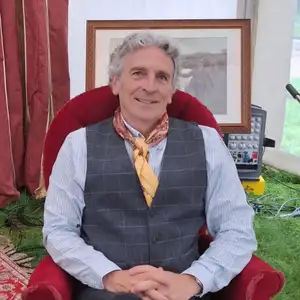Science advice for policy
When it comes to policy engagement, are the arts and humanities somehow different to STEM and the social sciences? Different in a way that makes policy engagement more challenging? It’s a reasonable question. The UK government recently announced a new Council for Science and Technology, to maintain and enhance the UK’s status as a global science superpower. With all this talk of science, researchers in the arts and humanities can be left thinking they don’t quite fit into the engagement landscape. They might be forgiven for thinking that their language, methodologies, evidence, and expertise are less relevant to policymaking or less in demand by policymakers.
Oxford and UPEN put this question to the test last year, co-hosting an event which asked, ‘what do UK policymakers want from the humanities?’. We put three questions to a panel of policymakers: what humanities-relevant evidence needs do you have, and how do you communicate these? How have you drawn on arts and humanities research? What opportunities are there to strengthen engagement between policymakers and arts and humanities researchers?
Besides practical opportunities to engage, two broad considerations emerged: the matter of language and how to translate research for policy, and the matter of timing – how to connect with the right policymaker at the right time. Reflecting on the event, two things struck me. First, these are challenges researchers in every discipline must reckon with. Second, arts and humanities researchers have skills at their disposal which make them well suited to overcome them.
Shared language
Others on this blog, here and here, have noted that humanities researchers can feel left out by the language used in policymakers’ calls for evidence or collaboration. These could be made more inclusive of the arts and humanities. However, the message from the panelists was clear: arts and humanities researchers should not be put off by references to ‘science’ and ‘evidence’. Science in policy is taken to mean new knowledge, and evidence as relevant and available information.
Policymakers value knowledge and evidence that elucidates concepts and distinctions as well as provides statistical data. They ask what has happened before or elsewhere, and what might happen in the future, and value expertise that contextualises or interrogates the framing of a policy challenge.
Experts in every field communicate with one another in jargon, so in that respect arts and humanities researchers are no better or worse than their peers in the sciences. But they also have an advantage. Not only are they trained to be persuasive, compelling communicators, arts and humanities academics will be communicating with policymakers who have very often studied those same disciplines, who share more of a common frame of reference than with academic scientists.
Collegial collaboration
The matter of timing is also common across disciplines. Researchers could wait for a call for evidence that perfectly relates to their recently completed study. There’s no reason to wait. The message from the panelists was again clear: there is no substitute for getting in touch. Doing this informally, being open about your work in progress and your research agenda, is a good way to build a relationship so that you are on the radar when the right inquiry or programme of work does arise.
Again, arts and humanities researchers are well suited to do this. Conferences and seminars can be remarkably collegial occasions, with researchers discussing interesting comparisons or unconsidered lines of inquiry with one another. The humanities might be more used to single-author papers, but these are often founded on rich, open exchanges of ideas. The same approach could be applied to policy partnerships, recognising that both the researcher and the policymaker are experts – colleagues – exploring and developing their thinking on a shared interest.
Different disciplines, but not in deficit
The arts and humanities are not the sciences. But any differences need not be understood as
shortcomings when it comes to policy engagement. Every researcher has barriers to navigate at the policy-research interface. Policymakers and researchers stand to benefit from continuing to cultivate the strengths that humanities researchers bring to this.
Jessie Simkiss is part of the Policy Engagement Team at the University of Oxford. As the Humanities and Public Policy Officer, Jessie is the first point of contact for researchers in Oxford’s Humanities Division and policymakers wanting to engage with them.
With thanks to the panelists who shared their insights and advice at the event, ‘what do UK policymakers want from the humanities?’:
- Melike Berker, Business Manager to the Chief Scientific Adviser, Department for Culture, Media and Sport
- Edward Hicks, Committee Specialist, House of Commons
- Alasdair Love, Clerk, House of Lords Communications and Digital Select Committee
- Stefano Pozzi, Assistant Director, EBacc and Arts Unit, Department for Education


